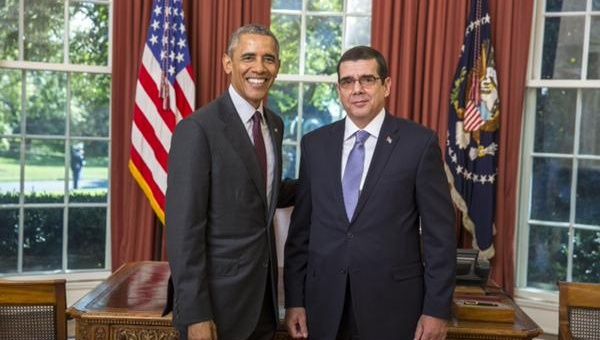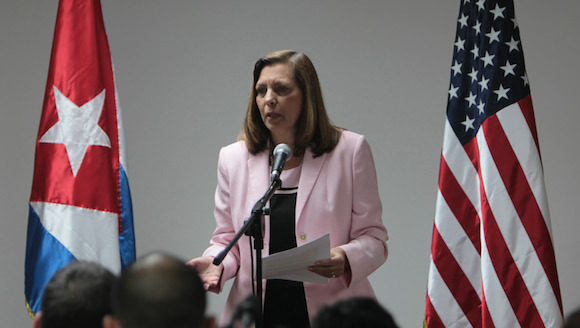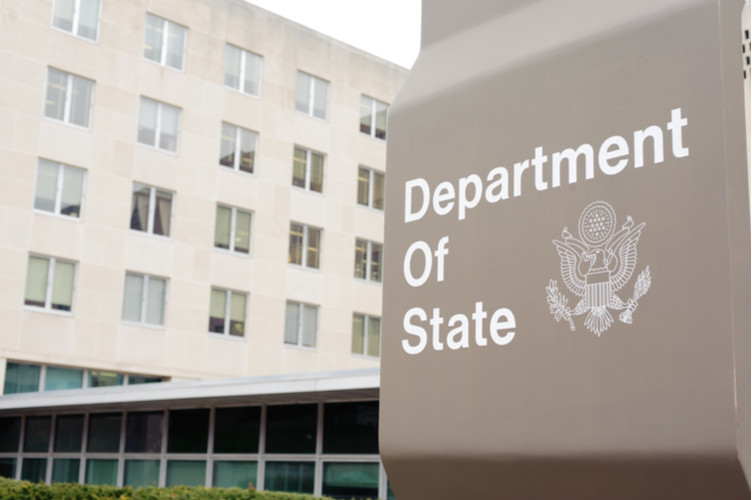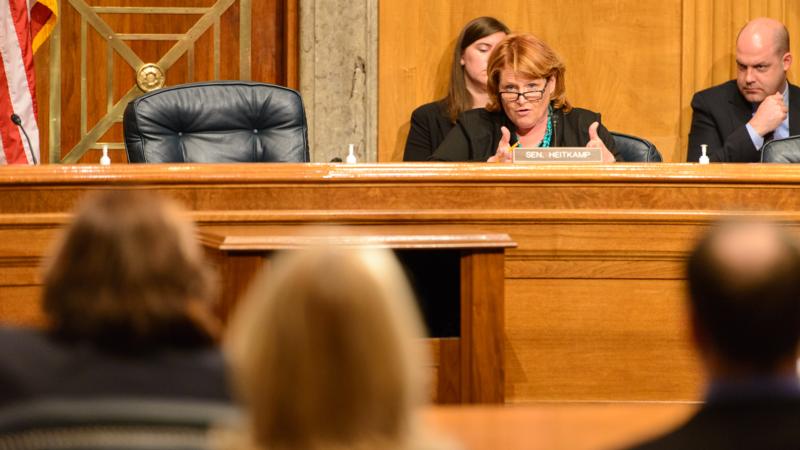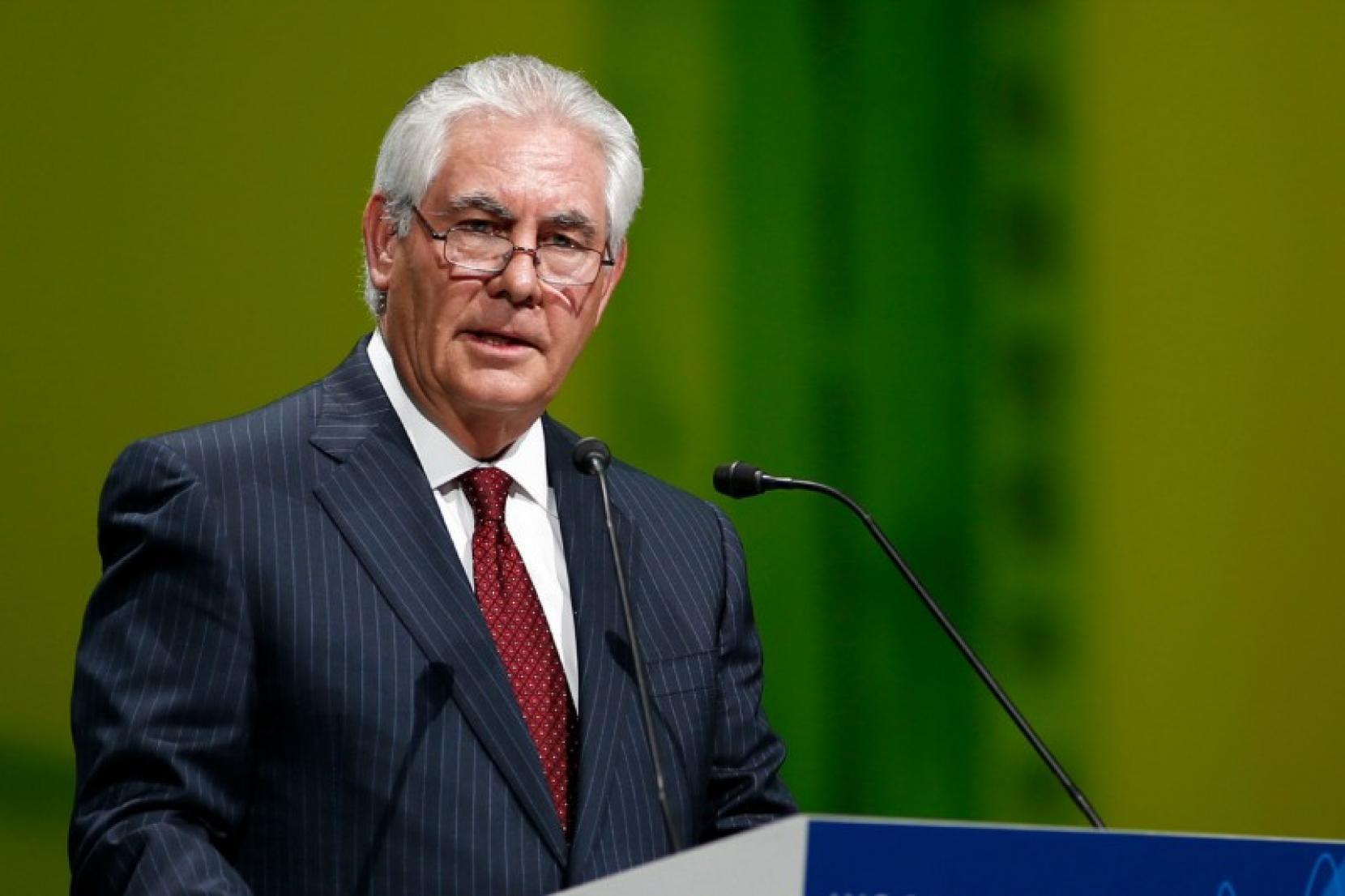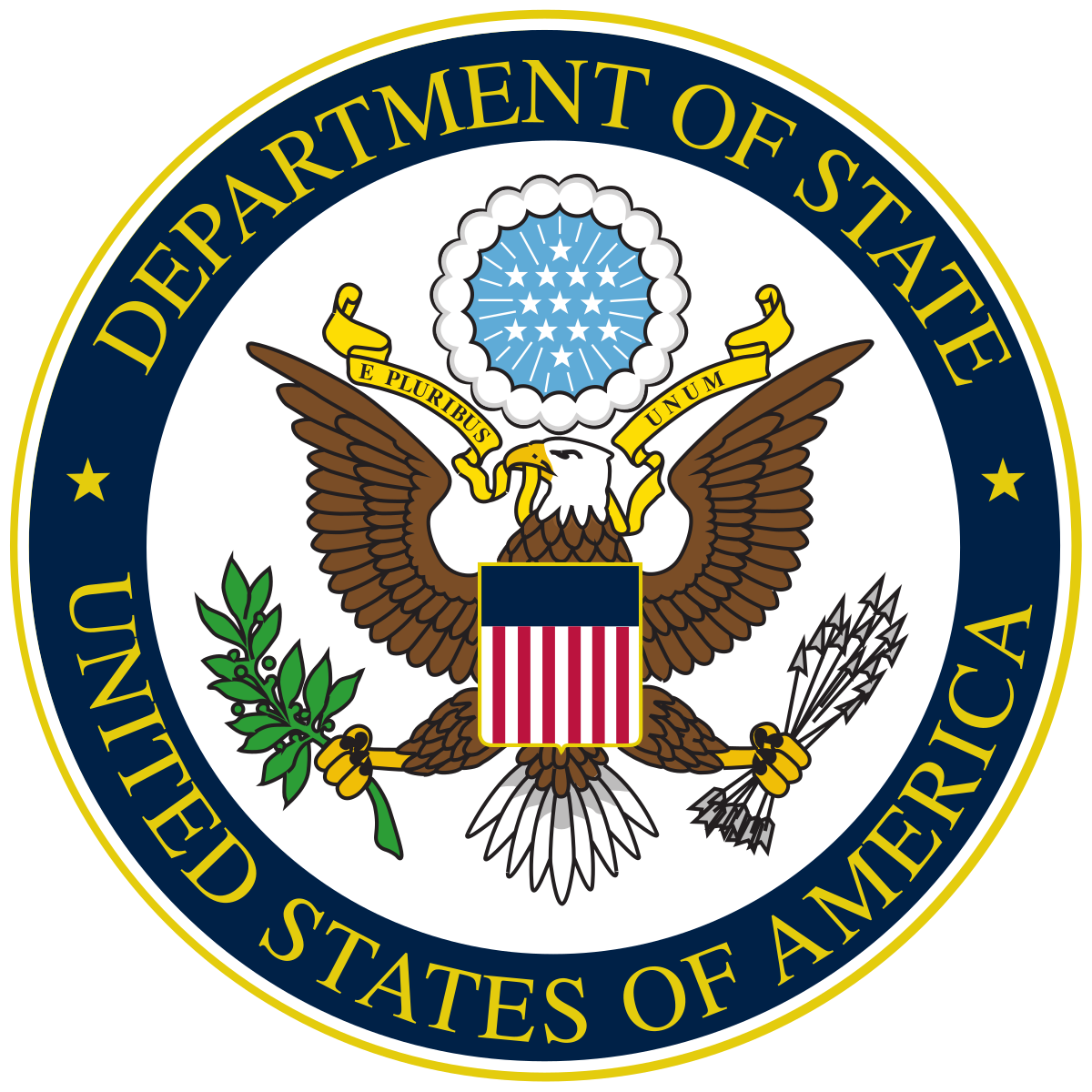THE WHITE HOUSE
Office of the Press Secretary
FOR IMMEDIATE RELEASE
February 22, 2018
MODIFYING AND CONTINUING THE NATIONAL EMERGENCY WITH RESPECT TO CUBA AND CONTINUING TO AUTHORIZE THE REGULATION OF THE ANCHORAGE AND MOVEMENT OF VESSELS BY THE PRESIDENT OF THE UNITED STATES OF AMERICA
A PROCLAMATION
In order to modify and continue the ongoing national emergency declared in Proclamation 6867 of March 1, 1996, expanded by Proclamation 7757 of February 26, 2004, and modified by Proclamation 9398 of February 24, 2016, in light of the need to continue the national emergency based on a disturbance or threatened disturbance of the international relations of the United States related to Cuba, and,
WHEREAS it is the policy of the United States that a mass migration from Cuba would endanger our security by posing a disturbance or threatened disturbance of the international relations of the United States;
WHEREAS the Cuban economy is in a relatively weak state, contributing to an outflow of its nationals toward the United States and neighboring countries;
WHEREAS the overarching objective of our policy is stability with our immediate neighboring countries and an outflow of Cuban nationals may have a destabilizing effect on the United States and its neighboring countries;
WHEREAS it is the policy of the United States to ensure that engagement between the United States and Cuba advances the interests of the United States and of the Cuban people as described in National Security Presidential Memorandum-5 of June 16, 2017 (Strengthening the Policy of the United States Toward Cuba);
WHEREAS the United States continues to maintain an embargo with respect to Cuba;
WHEREAS the unauthorized entry of vessels subject to the jurisdiction of the United States into Cuban territorial waters is in violation of the law of the United States and contrary to the policy of the United States;
WHEREAS the unauthorized entry of United States-registered vessels into Cuban territorial waters is detrimental to the foreign policy of the United States and counter to the purpose of Executive Order 12807 of May 24, 1992, which is to ensure, among other things, safe, orderly, and legal migration;
WHEREAS the possibility of large-scale unauthorized entries of United States-registered vessels into Cuban territorial waters would disturb the international relations of the United States by facilitating a possible mass migration of Cuban nationals;
NOW, THEREFORE, I, DONALD J. TRUMP, President of the United States of America, by the authority vested in me by the Constitution and the laws of the United States of America, including section 1 of title II of Public Law 65-24, ch. 30, June 15, 1917, as amended (50 U.S.C. 191), sections 201, 202, and 301 of the National Emergencies Act (50 U.S.C. 1601 et seq.), and section 301 of title 3, United States Code, in order to modify the scope of the national emergency declared in Proclamations 6867, 7757, and 9398, and to secure the observance of the rights and obligations of the United States, hereby continue the national emergency declared in Proclamations 6867, 7757, and 9398, and authorize and direct the Secretary of Homeland Security (the "Secretary") to make and issue such rules and regulations as the Secretary may find appropriate to regulate the anchorage and movement of vessels, and delegate to the Secretary my authority to approve such rules and regulations, as authorized by the Act of June 15, 1917. Accordingly, I hereby direct as follows:
Section 1. The Secretary may make rules and regulations governing the anchorage and movement of any vessel, foreign or domestic, in the territorial waters of the United States, that may be used, or is susceptible of being used, for voyage into Cuban territorial waters and that may create unsafe conditions, or result in unauthorized transactions, thereby threatening a disturbance of international relations. A rule or regulation issued pursuant to this proclamation may be effective immediately upon issuance if it involves a foreign affairs function of the United States.
Sec. 2. The Secretary is authorized, to the extent consistent with international law, to inspect any vessel, foreign or domestic, in the territorial waters of the United States, at any time; to place guards on any such vessel; and, with my consent expressly hereby granted, take full possession and control of any such vessel and remove the officers and crew and all other persons not specifically authorized by the Secretary to go or remain on board the vessel, when necessary to secure the rights and obligations of the United States.
Sec. 3. The Secretary may request assistance from such departments, agencies, officers, or instrumentalities of the United States as necessary to carry out the purposes of this proclamation. Such departments, agencies, officers, or instrumentalities shall, consistent with other provisions of law and to the extent practicable, provide the assistance requested.
Sec. 4. The Secretary may seek assistance from State and local authorities in carrying out the purposes of this proclamation. Because State and local assistance may be essential for an effective response to this emergency, I urge all State and local officials to cooperate with Federal authorities and to take all actions within their lawful authority necessary to prevent the unauthorized departure of vessels intending to enter Cuban territorial waters.
Sec. 5. All powers and authorities delegated by this proclamation to the Secretary may be delegated by the Secretary to other officers and agents of the United States Government consistent with applicable law.
Sec. 6. Any provisions of Proclamations 6867, 7757, or 9398 that are inconsistent with the provisions of this proclamation are superseded to the extent of such inconsistency.
Sec. 7. This proclamation shall be immediately transmitted to the Congress and published in the Federal Register.
IN WITNESS WHEREOF, I have hereunto set my hand this twenty-second day of February, in the year of our Lord two thousand eighteen, and of the Independence of the United States of America the two hundred and forty-second.
DONALD J. TRUMP
THE WHITE HOUSE
Office of the Press Secretary
FOR IMMEDIATE RELEASE
February 22, 2018
TEXT OF A LETTER FROM THE PRESIDENT TO THE SPEAKER OF THE HOUSE OF REPRESENTATIVES AND THE PRESIDENT OF THE SENATE
February 22, 2018
Dear Mr. Speaker: (Dear Mr. President:)
Section 202(d) of the National Emergencies Act (50 U.S.C. 1622(d)) provides for the automatic termination of a national emergency unless, within 90 days before the anniversary date of its declaration, the President publishes in the Federal Register and transmits to the Congress a notice stating that the emergency is to continue in effect beyond the anniversary date. In accordance with this provision, I have sent to the Federal Register for publication the enclosed Proclamation stating that the national emergency with respect to Cuba that was declared on March 1, 1996, in Proclamation 6867, as amended by Proclamation 7757 on February 26, 2004, and Proclamation 9398 on February 24, 2016, is to continue in effect beyond February 25, 2018, as modified by the enclosed Proclamation.
It continues to be the policy of the United States that a mass migration from Cuba would endanger the security of the United States by posing a disturbance or threatened disturbance to our international relations. The unauthorized entry of vessels subject to the jurisdiction of the United States into Cuban territorial waters is in violation of the law of the United States and is contrary to the policy of the United States. Further, the unauthorized entry of United States-registered vessels into Cuban territorial waters continues to be detrimental to our foreign policy and counter to the purpose of Executive Order 12807 of May 24, 1992, which is to ensure, among other things, safe, orderly, and legal migration. The possibility of large-scale unauthorized entries of United States-registered vessels would disturb the international relations of the United States by facilitating a possible mass migration of Cuban nationals. For these reasons, I have determined that it is necessary to continue the national emergency declared with respect to Cuba and the emergency authority relating to the regulation of the anchorage and movement of vessels set out in Proclamation 6867 as amended by Proclamations 7757 and 9398, and as further modified by the enclosed Proclamation.
Sincerely,
DONALD J. TRUMP






